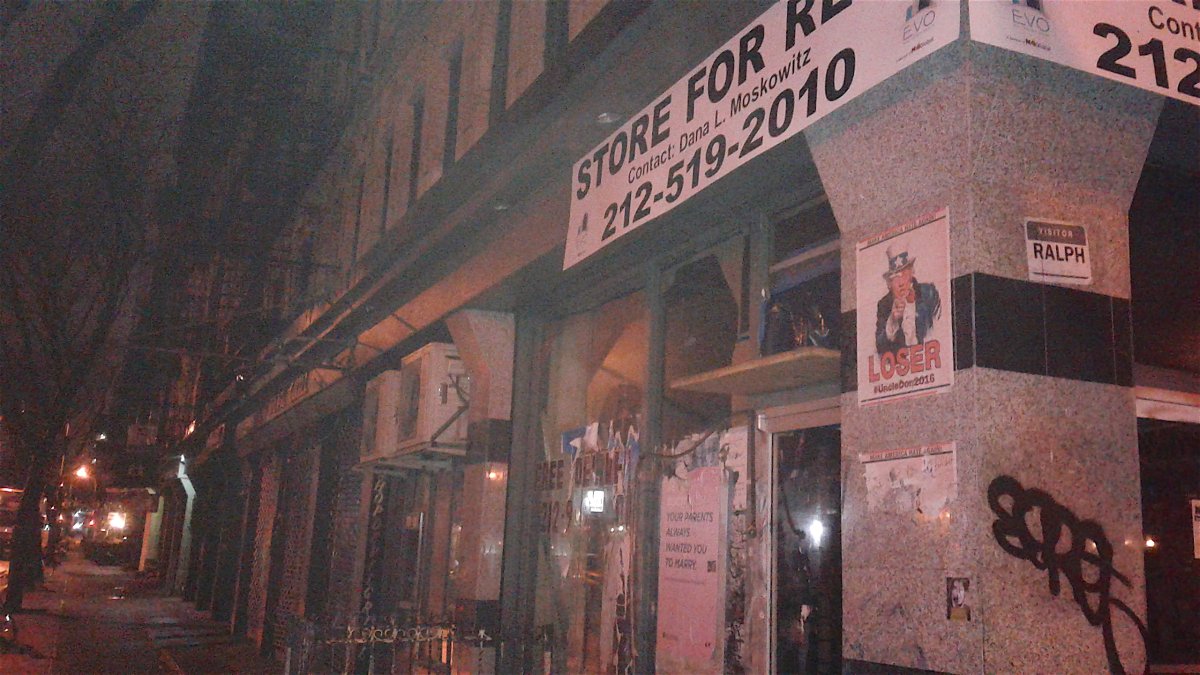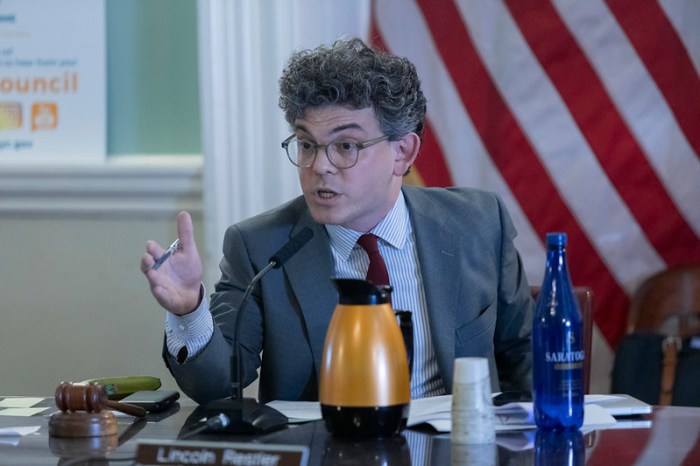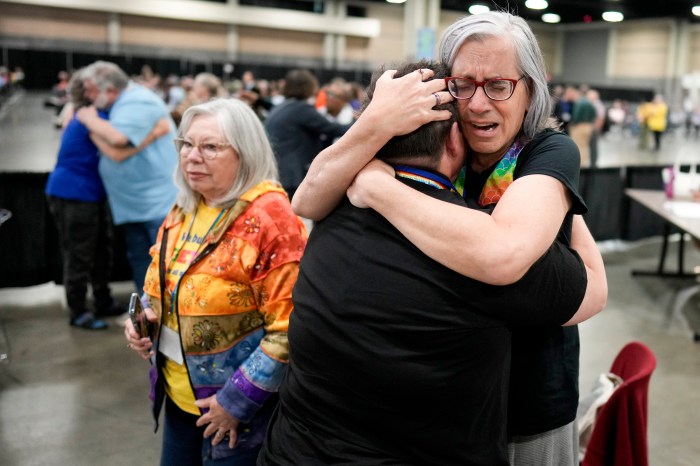BY LESLEY SUSSMAN | The Community Board 3 Economic Development Committee is trying to do something about the growing number of empty storefronts in the East Village.
The committee held a special public forum last Wednesday to get input on a proposal to preserve the neighborhood’s unique character and support small businesses.
The forum, at Sirovich Senior Center & Volunteers of America-Greater New York 12th St. Residence, at 331 E. 12th St., drew a large and vocal crowd.
Local residents, community activists and representatives of local politicians expressed anger and concern about the loss of East Village small businesses over the past 10 years and a resulting decrease in the diversity and affordability of local goods and services.

The “Special District Protection” proposal would create a new zoning area from Avenue D to, roughly, Third Ave. between E. 14th and Houston Sts. It would attempt to curtail the burgeoning number of banks and big-box stores the city is seeing, such as Walgreens, Old Navy and Walmart, so that smaller, local shops could have a better chance of serving community needs.
Such special zoning districts have been designated by the City Planning Commission since 1969 and allow neighborhoods to modify an area’s zoning to meet specific goals.
Among its aims, the C.B. 3 proposal would limit the presence of vacant storefronts, support existing small businesses, and preserve the unique character of a neighborhood that has drawn millions of tourists over the years.
The new district would not push out existing businesses and nightlife establishments, as some critics claim, but, instead, help strike a balance and try to create a level playing field for local merchants. For example, it would limit restaurants and bars to just 25 percent of any given block’s street frontage and allow just one bank or chain-store franchise per block.
Speakers lamented the gradual destruction of the East Village’s unique and colorful character and also the high-rent blight affecting small businesses — and residents
Also high on the list of concerns was the large number of “drunken N.Y.U. students” who create noise and other late-night disruptions that often awaken sleeping tenants.
C.B. 3 Chairperson Jamie Rogers started off by telling the audience, “We are not here tonight to present a plan to you but to get your input. We will not move forward on anything without your input.”
David Ford, chairperson of the board’s Economic Development Committee, followed by saying the proposal was “not a reaction to any building developer or store operating right now. What we’re doing is looking ahead to the future of the neighborhood.”
Forty-eight speakers had two minutes each to have their say. Lorcan Otway, owner of Theatre 80 St. Mark’s, said small Off Off Broadway theaters are being driven out of the neighborhood because they’re being “overwhelmed by taxes and high rents.”
“Landlords are hiking up rents to drive out small restaurants, theaters and businesses, so that they could rent to large-scale businesses,” Otway said. “New York is not dying — it’s being murdered by taxation,” he added.
Abby Ehmann, owner of Lucky bar, at 168 Avenue B, also complained about New York University students.
“The kids who live in those N.Y.U. dorms just dump all their crap on the sidewalk when they go off to wherever they go off to in the summer,” Ehmann said. “They don’t contribute anything to the neighborhood.”
Jorge Vasquez, a City Council candidate, backed a special district, but also suggested limiting chain stores that “pop up for a season, like tax-preparation services and Halloween stores.”
“Once our small businesses go,” he said, “then your community changes because that’s the kind of businesses where we work at. That’s who supports our baseball teams and schools.”
Most speakers were small business owners and voiced uniformed support of the C.B. 3 proposal. One who did not, and was soundly booed, was Sam Levy, a research analyst with the Real Estate Board of New York.
“The community board’s assertion that local small businesses are suffering due to ‘exorbitant rents’ is not based on any factual analysis of whether the businesses are failing or moving on for other reasons,” he charged.
Levy added that, in fact, both national chains and small merchants are “facing unprecedented retail challenges that stem from lack of demand due to burgeoning e-commerce — not high rents.”
Afterward, CB 3 Chairperson Rogers said he was pleased by what he heard from area residents and merchants.
“The feedback was exceedingly helpful,” he said. “There’s a lot of anxiety about the loss of small business that people cherish and a lot of concern that people won’t be able to afford to start new businesses. I’m really encouraged by the potential solutions being offered, and it will all be synthesized into a proposal we can take to the proper officials.”
















